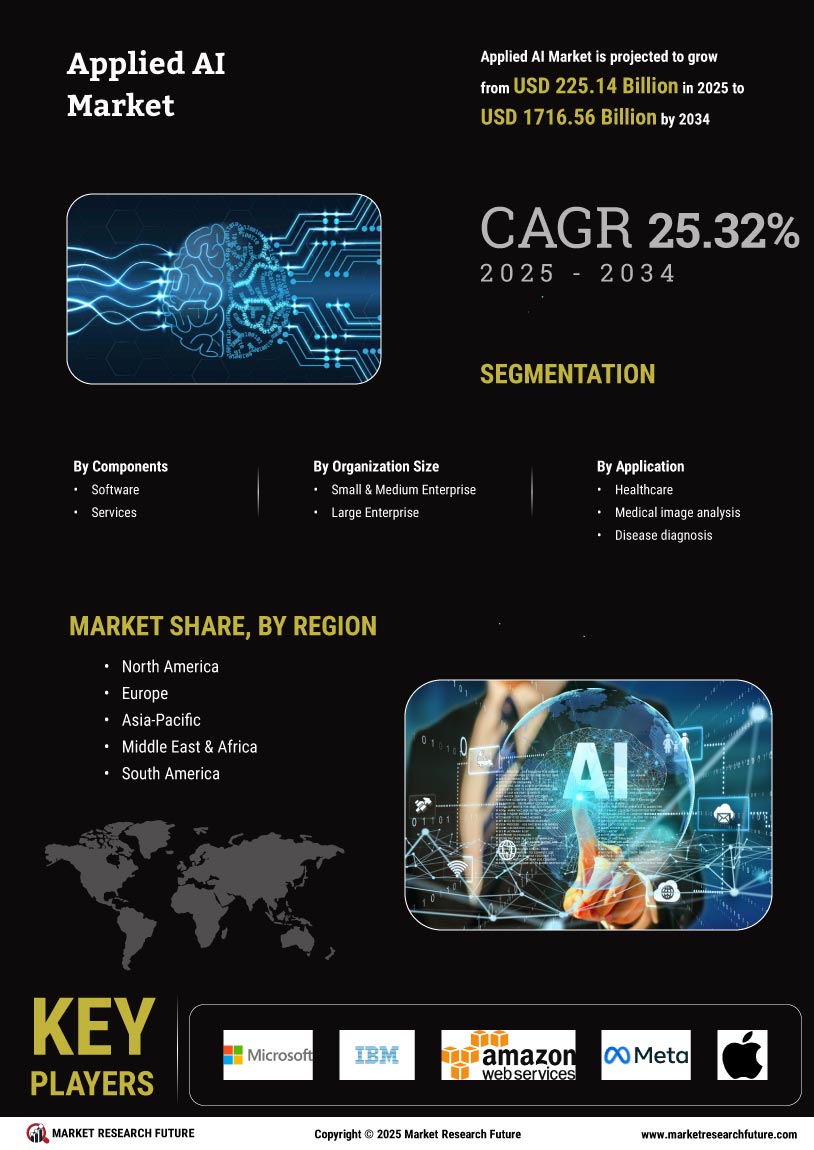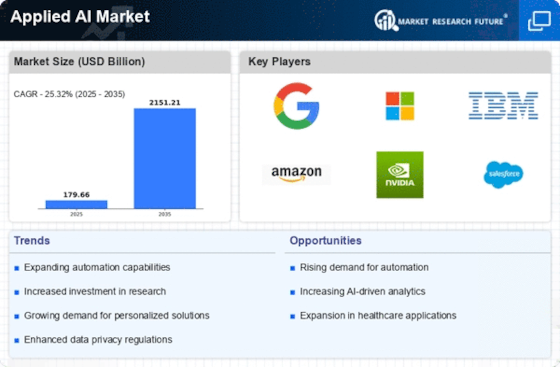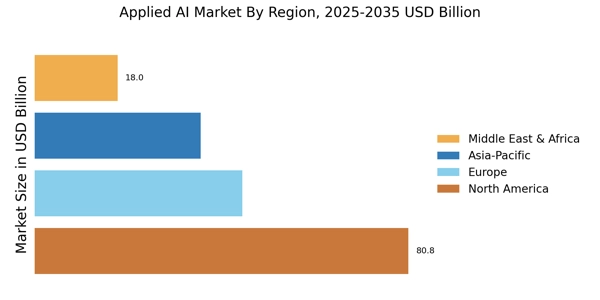Rising Demand for Automation
The Applied AI Market experiences a notable surge in demand for automation across various sectors. Organizations are increasingly adopting AI-driven solutions to enhance operational efficiency and reduce costs. According to recent data, the automation market is projected to reach a valuation of approximately 200 billion dollars by 2026, indicating a robust growth trajectory. This trend is particularly evident in manufacturing, logistics, and customer service, where AI applications streamline processes and improve productivity. As businesses seek to remain competitive, the integration of AI technologies becomes essential, driving further investment in the Applied AI Market. The potential for automation to transform traditional workflows suggests that companies are likely to prioritize AI solutions in their strategic planning.
Growing Investment in AI Startups
Investment in AI startups is a critical driver of growth within the Applied AI Market. Venture capital funding for AI-related ventures has seen exponential growth, with billions of dollars being funneled into innovative companies. In 2025, it is estimated that investment in AI startups could surpass 100 billion dollars, reflecting the increasing confidence of investors in the potential of AI technologies. This influx of capital not only accelerates the development of new applications but also fosters a vibrant ecosystem of innovation. As startups introduce novel solutions and disrupt traditional industries, established companies are compelled to adapt, further propelling the growth of the Applied AI Market. The dynamic interplay between investment and innovation suggests a promising future for AI technologies.
Expansion of AI in Financial Services
The financial services sector is witnessing a rapid expansion of AI applications, significantly impacting the Applied AI Market. Financial institutions are leveraging AI for various purposes, including fraud detection, risk assessment, and personalized customer service. Recent studies indicate that the adoption of AI in finance could lead to cost savings of up to 20 billion dollars annually by 2025. This trend is driven by the need for enhanced efficiency and improved customer experiences in a highly competitive market. As banks and financial firms increasingly integrate AI technologies into their operations, the demand for specialized AI solutions is expected to rise. The expansion of AI in financial services not only highlights the versatility of AI applications but also underscores the transformative potential of the Applied AI Market.
Advancements in Machine Learning Algorithms
The Applied AI Market is significantly influenced by advancements in machine learning algorithms. These innovations enhance the capabilities of AI systems, enabling them to process vast amounts of data with greater accuracy and speed. Recent developments in deep learning and neural networks have led to breakthroughs in various applications, including natural language processing and image recognition. As organizations increasingly rely on data-driven decision-making, the demand for sophisticated machine learning solutions is expected to rise. Market analysts indicate that the machine learning segment alone could account for over 50% of the overall AI market by 2025. This trend underscores the importance of continuous research and development in the Applied AI Market, as companies strive to leverage cutting-edge technologies to gain a competitive edge.
Increased Focus on Data Privacy and Security
The Applied AI Market faces growing scrutiny regarding data privacy and security. As AI systems become more integrated into everyday operations, concerns about the ethical use of data have intensified. Regulatory frameworks are evolving to address these issues, with governments implementing stricter guidelines to protect consumer information. This shift is likely to influence how companies develop and deploy AI solutions, as compliance with data protection regulations becomes paramount. Organizations that prioritize data privacy are expected to gain a competitive advantage, as consumers increasingly favor businesses that demonstrate a commitment to ethical practices. Consequently, the emphasis on data security is shaping the strategies of companies within the Applied AI Market, driving innovation in secure AI technologies.

















